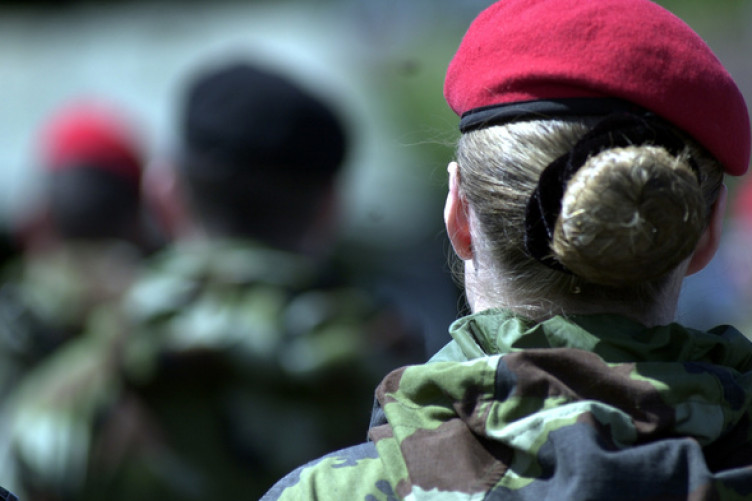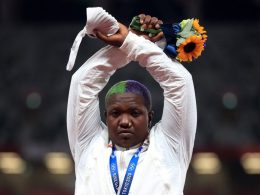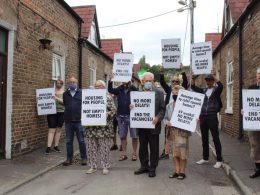By Martina Stafford
…promotions unfairly denied, careers interrupted by discrimination, unfair treatment after maternity leave.. bullying, sexual harassment, sexual assault and the depression, bulimia, self-harm and suicide attempts that followed (RTE Radio Documentary, 2021)
‘Women of Honour’ (WoH) is a group of former members of the Defence Forces who detailed horrific allegations of sexual abuse, harassment and discrimination in the Irish Defence Forces in an RTE radio documentary in September 2021. Despite the wishes of the WoH, Former Minister for Defence Simon Coveney refused to commit to a statutory inquiry, and instead insisted on a “judge-led independent review” to examine the issues.
Fighting for justice for decades
Nevertheless, the year-long review published in April this year has recommended the statutory inquiry that the WoH were calling for from the beginning. This unnecessary delay of the inquiry itself illustrates the paternal, dismissive attitude taken towards survivors of institutional abuse, which is nothing new in this state.
The reality is that these women and others in the Defence Forces have actually been fighting for action for decades. Karina Molloy turned whistleblower on sexual abuse after a 30-year career in the Defence Forces. She has called out senior military leadership going back to the 1980s for what she said were repeated failings to deal with her and other women’s complaints of abuse. Her book also documents allegations of a number of incidents of sexual harassment, which alleged perpetrators claimed were ‘banter’, including a gift of red lace underwear for her birthday with the slogan “I wish I was here” written on them in marker. Following this incident, an officer brought her into his room and allegedly attempted to force himself on her and kiss her before she ran out.
Victim blaming
The report alleges that women were often advised to keep locks on their doors and that some even had to barricade doors. This is a horrific demonstration of the disproportionate responsibility placed on women to protect themselves from male violence and abuse. The Defence Forces investigative processes have historically consisted of denial and deflection tactics — to control those who would challenge discrimination, abuse and unacceptable working conditions. The report recommends that allegations of abuse within the Defence Forces should be referred to An Garda Siochana and not managed internally. There is no doubt that removing the military chain of command from the complaint process is a bare minimum requirement. However, this is unlikely to significantly impact justice for survivors, when we already have a legal and justice system that is failing abysmally when it comes to victims of sexual violence and abuse.
The failings found in this report are replicated in other state agencies, including An Garda Síochana. For example, it came to light in 2021 that more than 3,000 calls relating to domestic violence were cancelled by Gardaí. To add further insult to injury, Tánaiste Micheál Martin has confirmed that allegations of sexual offences against members of the Defence Forces will continue to be investigated internally if they happen abroad! It really begs the question of how the WoH and other victims of discrimination and abuse can have faith in the ability of the Defence Forces or any state agency to implement the kind of change that is necessary.
“Abuse of power and command”
A “consistent and embedded theme found in the report is that members of the Defence Forces management, abuse their positions of power and command in their treatment of subordinates”. This overwhelmingly leads to the victimisation of women as well as “lower status” men who are not members of the “elite” or “officer class”. In the last number of weeks, incidents have emerged that further demonstrate the culture of hypermasculinity and abuse of power. One male victim of male violence was told: “You are either leaving in the morning or leaving with broken ribs”. The victim said he felt he could not breathe at one stage and feared he would be rendered unconscious from the headlock. His attacker was considered a “senior man” among the recruits. Further allegations relate to army superiors waging a campaign of sexual abuse against teenage boys throughout the 1970s and 80s at a training camp in Munster.
This pattern of abuse of power and sexual violence is not unique to the Irish Defense Forces. A series of reports have been published in recent years exposing harassment and sexual violence in the defence forces of many states including Canada, Israel, the UK, the US and others. In the British military, four in 10 military women are victims of sexual violence. Furthermore, for centuries, armies have used rape as a weapon of war. In recent years, there has also been growing evidence of the pervasiveness of sexual violence perpetrated by peacekeeping forces across the world. The allegations by several children as young as 9 of trading sex for food with French soldiers tasked with protecting civilians in the Central African Republic didn’t become public until almost a year after U.N. staffers first heard the children’s stories.
Militaries around the world are consciously organised in a very hierarchical way, with elitist command structures that create a culture of power imbalance. This is because the fundamental role of the state is to defend the capitalist system which exploits and oppresses the many for the gain of the few, which necessitates violence and coercion. Hierarchical division of power is essential to maintain the discipline of lower-ranking soldiers who in reality lose more than they gain by protecting the status quo. While it is the case that the role of state institutions fundamentally is to protect the interests of the wealthy, it is possible for workers within these institutions to fight back and challenge their treatment and demand democratic input. It is a step forward to undermine the chain of command overseeing investigations into sexual assault in the Irish Defence Forces.
Hierarchal state agency
However, instead of handing it over to another hierarchical state agency that is completely culpable for the lack of seriousness shown to victims of abuse -it is essential that this is seen as part of a wider demand for the right of all rank-and-file members of the defence forces to be allowed to organise for better pay and working conditions and to be able to participate in the struggles of women and LGBTQI+ workers in other sectors in their fight against discrimination, harassment and gender-based violence in the workplace.
The ban on trade union organisation in the Defence Forces needs to end, including the right to take industrial action. Pay and conditions in the lower ranks are atrocious which clearly opens up even more space for abuse of power. Complaints of sexual harassment should be dealt with by a democratic body of rank-and-file soldiers which is made up of at least 50% women/gender non-conforming people. This body could develop a code of conduct based on the findings of the report, the input of victims as well as professional input on the nature of abuse and the impact of gender identity, sexual orientation and race/ethnic background on differential power dynamics.
All rank-and-file members of the defence forces should see this fight as connected to their own fight for better working conditions and lives. This means standing in solidarity with victims of abuse to build a struggle from below that seeks to challenge discrimination, sexism, low pay and bullying.












